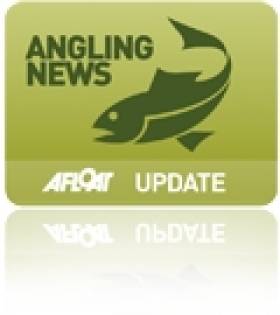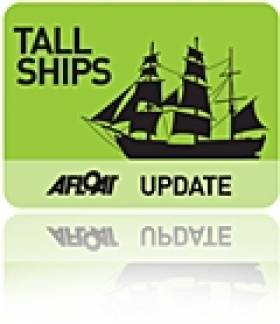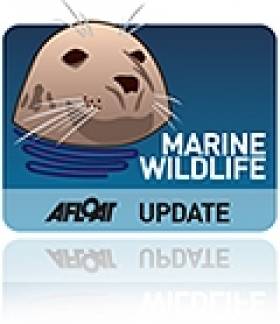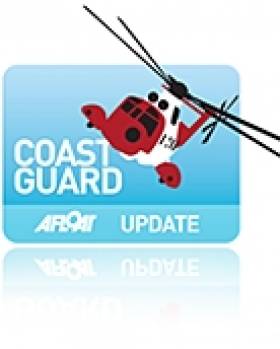Displaying items by tag: review
'Podium Athletes' Face Funding Cuts in 2013
#OLYMPICS - Yesterday Ireland's Olympic hopefuls celebrated recognition of their success in the 2012 round of funding.
But cuts to the budget of the Irish Sports Council (ISC) have prompted a "major" review of high performance programmes from 2013 onwards, the Irish Independent reports.
Finbarr Kirwan, director of high performance at the ISC, said: "Changes are coming, things are tight and we will have to make strategic cuts in the next two years."
The result could be fewer grant awards of lesser value for athletes, as Olympic qualification standards are set to get tougher from here on out.
The two tiers below 'podium class' - in which individuals receive awards of €20,000 and €12,000 respectively - are expected to be hardest hit in the review.
As previously reported on Afloat.ie, canoeing's Eoin Rheinisch, swimmer Grainne Murphy and sailors Annalise Murphy, Peter O'Leary and David Burrows each received the top level of funding of €40,000 each, which is on a par with last year's support.
The Irish Independent has more on the story HERE.
National Disabled Angling Centre to Stay Open Pending Review
#ANGLING - The National Disabled Angling Facility at Aughrim in Co Wicklow is to remain open following an 11th-hour agreement last month, The Irish Times reports.
A deal reached between Fás, Siptu and the centre's staff will retain all 23 jobs with a 25% pay cut and see the premises stay open until a "review" is published in March.
Opened by then President Mary Robinson in 1996, the facility is operated as a Community Employment Fás scheme and has been an invaluable amenity for disabled anglers nationwide.
Sail Training Schooner Locked Up Since 2007
#TALL SHIPS - The flagship vessel for an Asgard-type sail training programme in Cork has been locked up in a boatyard since 2007, the Irish Examiner reports.
The Omar B was supposed to be the focus of a Youthreach project based in Bantry for early school leavers. But the schooner has spent the last four-plus years in storage in Baltimore, and has been deteriorating due to lack of maintenance - despite the scheme still notionally running, the newspaper report says.
Five two-man dinghies purchased with grant money have also reportedly spent most of 2011 in storage.
Co Cork's VEC has now put the €150,000 sailing programme under review following concerns over storage costs and lack of direction for the project.
The 75ft Omar B was donated to the CCVEC by owner and builder Don Attig in 2003 and refitted for use by students thanks to generous voluntary funding. Attig said the boat was of immense benefit to students who would not otherwise be in education.
The Irish Examiner has much more on the story HERE.
Groups Concerned Over UK Govt Plans for Marine Conservation Zones
#MARINE WILDLIFE - Conservationists in the UK have voiced their concern that Westminster will enact fewer than a quarter of the proposed Marine Conservation Zones in British waters.
The Press Association reports that some 127 such zones - including parts of the Irish Sea - have been earmarked by regional conservation groups as areas requiring special environmental protection.
All 127 proposals were reviewed by an independent panel of scientists and government committees before they were to go on public consultation.
But it is now feared that a mere 23 of the total will get the go-ahead, due to a perceived lack of evidence to support the case for the rest.
"To only designate 23 marine conservation zones is equivalent to switching off the life support for our seas," commented Joan Edwards of the Wildlife Trusts.
The Press Association has more on the story HERE.
Bangor Coastguard Centre Saved from the Chop
Northern Ireland's only dedicated search and rescue command centre has been saved from closure following a review of plans to streamline the UK's coastguard network.
BBC News reports that UK Transport Minister Phillip Hammond told the House of Commons today that the coastguard station at Bangor would remain open and operate 24 hours a day, allaying concerns that the station would be reduced to daytime-only service.
"Had this decision gone the wrong way, it would not simply have been a blow for the staff here in Bangor, but for all of Northern Ireland," commented North Down MLA Peter Weir.
The Bangor station will be one of eight full-time centres across the UK that remain open, while the stations at Clyde, Forth, Portland and Liverpool will be closed.
BBC News has more on the story HERE.

































































